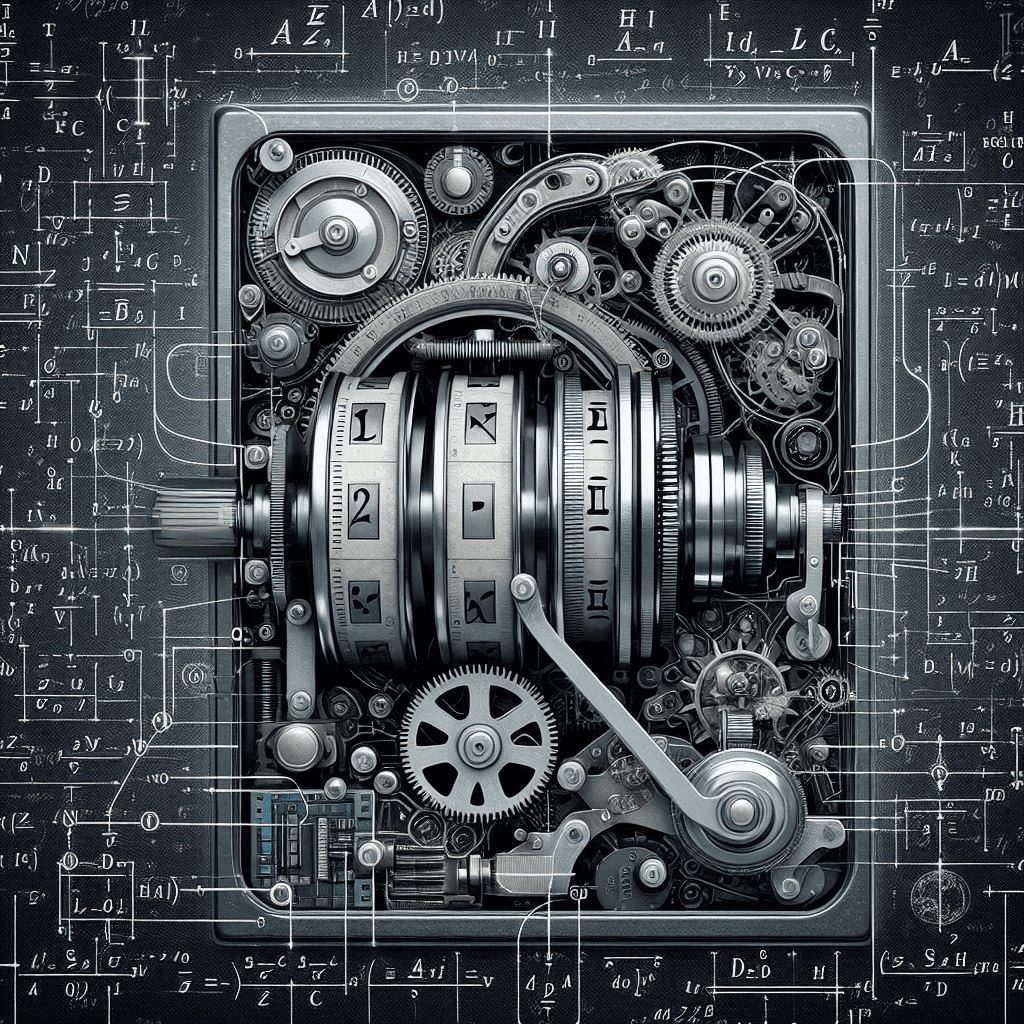Slot machines have long captivated players with their vibrant graphics, engaging sounds, and the promise of life-changing jackpots. But beyond the flashing lights and spinning reels lies a complex world of algorithms and mathematical principles that govern how these machines operate. Understanding the science behind slot machine algorithms can enhance your gaming experience and provide insights into how wins are generated. This article delves into the mechanics of slot machines, the algorithms that power them, and the factors that contribute to their outcomes.
The Basic Mechanics of Slot Machines
At their core, machines operate on a straightforward premise: players insert money, spin the reels, and hope to land winning combinations. However, the underlying mechanics involve intricate technology and programming.
Random Number Generators (RNGs)
- What is an RNG?: A Random Number Generator (RNG) is the backbone of modern slot machines. It is a computer program that generates a sequence of numbers that correspond to the positions of the symbols on the reels.
- Functionality: The RNG produces thousands of numbers per second, ensuring that every spin is entirely random and independent of previous spins.
Paylines and Payouts
- Paylines: A payline is a line on which a payout will be awarded based on winning combinations of symbols. Traditional slots may have one payline, while modern video slots can feature multiple paylines.
- Payouts: Each symbol has a predefined value, and the payout for winning combinations is determined by the number of matching symbols on the active paylines.
The Role of Software Providers
Software providers play a crucial role in the development and maintenance of machines. Companies like Microgaming, NetEnt, and Playtech design the games, including the algorithms that determine outcomes. They ensure compliance with regulatory standards and provide ongoing updates to maintain fairness and security.
Understanding Algorithms
The Mathematics Behind Slot Machines
The algorithms that power slot machines are rooted in mathematical principles, primarily probability and statistics. Understanding these concepts can demystify how outcomes are determined.
Probability Theory
- Basic Concepts: Probability measures the likelihood of a particular outcome occurring. In the context of slot machines, it refers to the chance of landing specific symbols on a payline.
- Calculating Odds: The odds of hitting a winning combination depend on the number of symbols on the reels and the number of active paylines.
Return to Player (RTP)
- What is RTP?: Return to Player (RTP) is a percentage that indicates how much of the total wagered amount a slot machine will pay back to players over time. For example, a slot with an RTP of 96% will return $96 for every $100 wagered, on average.
- Importance of RTP: Understanding RTP helps players make informed decisions about which games to play, as higher RTPs generally indicate better long-term payouts.
The Role of Volatility
Volatility, or variance, is another critical factor in slot machine performance. It refers to the risk associated with a particular slot game and influences how payouts are distributed.
Low Volatility Slots
- Characteristics: These games offer frequent but smaller wins, making them suitable for players who prefer a steady stream of payouts.
- Ideal for Bankroll Management: Low volatility slots are often favored by players looking to extend their gameplay and minimize risk.
High Volatility Slots
- Characteristics: High volatility slots provide infrequent wins with the potential for significant payouts. They appeal to thrill-seekers and those willing to take risks.
- Potential for Big Wins: While high volatility games can lead to larger payouts, they also come with the risk of extended losing streaks.


The Impact of Game Design on Algorithms
Theme and Graphics
The visual and thematic elements of a slot machine can influence player engagement but do not directly affect the algorithms. However, appealing graphics can enhance the overall experience and encourage players to continue spinning the reels.
Bonus Features
Many modern game incorporate bonus features such as free spins, multipliers, and interactive mini-games. These features are programmed into the algorithm and can significantly impact the overall payout structure.
Free Spins
- Triggering Conditions: Free spins can be triggered by landing specific combinations of scatter symbols.
- Enhanced Winning Potential: During free spins, players often have the chance to win additional payouts without wagering more money.
Multipliers
- What are Multipliers?: Multipliers increase the payout of winning combinations by a predetermined factor, enhancing the potential for larger wins.
- Integration with RTP: Multipliers are often designed to work within the game’s overall RTP structure, providing exciting moments without jeopardizing the machine’s profitability.
Progressive Jackpots
Progressive jackpot game are linked across multiple machines, with a portion of each bet contributing to a growing jackpot. The algorithms governing these games are designed to ensure that a certain percentage of wagers contributes to the jackpot fund.
How Progressive Jackpots Work
- Contribution Mechanism: A small percentage of each bet is added to the jackpot, which continues to grow until a player hits the winning combination.
- Winning Odds: The odds of winning a progressive jackpot are typically much lower than standard payouts, making them a high-risk, high-reward option.
The Regulatory Framework
Ensuring Fairness
Regulatory bodies, such as the UK Gambling Commission and the Malta Gaming Authority, oversee the gaming industry to ensure fairness and transparency. They require rigorous testing of slot machine algorithms to verify that they operate as intended.
Independent Testing Labs
Independent testing labs conduct audits of slot machines, ensuring that the RNGs and algorithms meet industry standards. This process is vital for maintaining player trust and ensuring a fair gaming environment.
The Psychology of Slot Machines
The Role of Near Misses
Near misses occur when players almost land a winning combination but fall just short. This phenomenon can create a sense of excitement and encourage players to continue playing, despite the lack of actual wins.
The “Gambler’s Fallacy”
The Gambler’s Fallacy is a common misconception where players believe that past outcomes influence future results. For example, if a game machine hasn’t paid out in a while, a player might assume it’s “due” for a win. In reality, each spin is independent, and the RNG ensures that past results have no bearing on future outcomes.
The Importance of Sound and Visuals
The auditory and visual elements of slot machines are designed to create a stimulating environment. Sounds of coins dropping, celebratory music, and animated graphics enhance the overall gaming experience, making players more likely to engage and play longer.
Strategies for Playing Slot Machines
Understanding Your Bankroll
Effective bankroll management is crucial for enjoying game:
- Set a Budget: Determine how much you are willing to spend before you start playing, and stick to that limit.
- Choose Appropriate Bet Sizes: Adjust your bet size according to your bankroll to prolong your gameplay.
Selecting the Right Games
Choosing the right game can significantly impact your experience:
- Consider RTP and Volatility: Look for slots with higher RTP percentages and choose a volatility level that matches your risk tolerance.
- Explore Different Themes: Variety can keep the gaming experience fresh and exciting, so try different games to find your favorites.
Taking Advantage of Bonuses
Many online casinos offer bonuses, including free spins and deposit matches. Take advantage of these offers to extend your gameplay and increase your winning potential.
Knowing When to Quit
Recognizing when to stop playing is essential for maintaining a healthy gaming experience:
- Set Win and Loss Limits: Establish limits for both wins and losses to prevent chasing losses or overspending.
- Take Breaks: Regular breaks can help maintain a balanced approach to gaming and prevent fatigue.
Conclusion
The science behind slot machine algorithms is a fascinating blend of mathematics, psychology, and technology. Understanding how these machines operate can enhance your gaming experience and provide valuable insights into the mechanics of winning. While no strategy can guarantee success, employing effective bankroll management, selecting the right games, and taking advantage of bonuses can significantly improve your chances of winning. As you engage with 3D slot machines and their captivating features, remember to enjoy the experience while keeping the underlying mechanics in mind.
FAQs
-
How do slot machines determine winning combinations?
Slot machines use Random Number Generators (RNGs) to determine the outcome of each spin. The RNG generates a sequence of numbers that correspond to the symbols on the reels, ensuring each spin is random and independent.
-
What is the difference between RTP and volatility?
Return to Player (RTP) is a percentage that indicates how much of the total wagered amount a slot machine will pay back to players over time. Volatility refers to the risk level associated with a slot game, indicating how frequently and how much players can expect to win.
-
Are all slot machines programmed the same way?
While all slot machines utilize RNGs and algorithms, the specific programming, payout structures, and features can vary significantly between games and software providers.
-
How can I choose the best slot machine to play?
To choose the best slot machine, consider the RTP, volatility, and your personal preferences for themes and features. Look for games that align with your risk tolerance and gameplay style.
-
Can I beat slot machines using a specific strategy?
No strategy can guarantee wins on slot machines, as they are games of chance. However, effective bankroll management, understanding the game mechanics, and choosing suitable games can enhance your overall experience and potential for winning.
